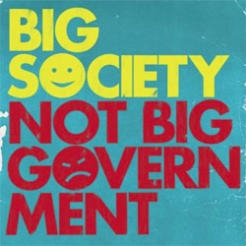Speakers at yesterday’s ‘Reality check for Big Society’ event did not provide ringing endorsements that the government’s policy agenda would create a more equal and fair society.
Opening the event organised by Our Society Network, chair Julian Dobson said that “in the absence of big cheques from government, it is important for us to create a big check for government”.
Dobson suggested that “Big Society is happening but not in the way government expected it to. It is happening with up to half a million people marching through London saying ‘we don’t want the version of the Big Society that involves the removal of lots of infrastructure that supports communities and community activity’.”
The event was hosted in the community centre at Walterton & Elgin Community Homes (WECH), a unique resident-controlled housing association in west London.
WECH’s Jonathan Rosenberg told the story of the housing association’s heritage and said surveys of residents had shown them to be happier, more engaged and feeling a stronger sense of belonging to their neighbourhood since the transfer of ownership from state to tenants in 1992. WECH has shared the findings with the government and the Office for National Statistics, which is conducting the wellbeing study.
“We have proved that community ownership is not only possible, but sustainable,” he said.
Will Horwitz, Community Links
Will Horwitz, communications co-ordinator at Community Links, said the Big Society was falling down in the broader economy. Community Links is closing three community centres this week, making staff redundant, and shutting children’s play schemes as a result of cuts in funding.
And Newham, where the charity is based, will be hit very hard by the cuts because it has a high proportion of public sector workers, a high proportion of young people, and is likely to see an influx of tenants driven out of the inner-city boroughs by changes to housing benefit.
Horwitz also worried that the government’s stated ambition for more charities to take advantage of payment-by-results contracts will not be practical as most charities are simply too small to compete effectively with larger private sector providers. “If they are serious about it then they need to involve the sector in designing the commissioning process,” Horwitz said.
Toby Blume, Urban Forum
Toby Blume, director of Urban Forum, said the policies behind the Big Society go beyond what Labour offered in terms of ambition and statutory basis for those ambitions, but he was increasingly worried that the government’s actions did not match its rhetoric.
He warned that the creation of more opportunities did not necessarily lead to improved outcomes for society as a whole, because those with more power and more resources were better equipped to take advantage of those opportunities.
“I think there is a huge risk that creating these opportunities and then sitting back and saying ‘make the most of them’ will actually exacerbate inequalities,” Blume said. He said the Office for Civil Society’s decision not to award strategic partner status to any equalities body – including his own Urban Forum - was “quite unexplainable”, and added that if the government wants people to believe it is serious about the Big Society then “we need to see them directing resource to target support to those who lack power”.
Blume added: “Increasingly I am of the view that we will have to fight to take advantage of those opportunities. They are not going to be simply afforded to us because those with more resource and more power will be better equipped. It is critical that we organise now in advance of new legislation to prepare ourselves so that we don’t see rising inequality.”
Jess Steele, Locality
Locality’s Jess Steele, who is running the community organisers programme that the government is funding to the tune of £15m, said that although governments were quick to embrace the language of social action, neither the last government or this one had absorbed the values associated with the language. “We’re yet to see whether they are able to embed those values further through the programmes they might allow us to run or the programmes or direct action that we choose ourselves.”
Steele said she has been involved for ten years in a campaign called Community Allowance, which has attempted to convince successive governments to change the welfare system so that community organisations can pay people to do work in their local area that strengthens their neighbourhoods, without losing their benefit. "It's not worked yet," she said. "We're still waiting for DWP to catch up with the Big Society, when that happens we may really have a significant breakthrough."
Click here to see what more Steele said about the community organisers programme.
Paul Webster, Navca
Paul Webster, project co-ordinator for Navca’s regional ICT champion scheme, addressed the meeting on his last day in the job – he has been made redundant as a result of the spending cuts.
He said the loss of support workers like him will make it much harder for small organisations to get help to improve their use of technology. “People will have to reinvent the wheel, they won’t know who to go to for support. They’ll have to make do and find their own way through things.”
Click here to read more about what Paul Webster said.
Nick Denys, Platform 10
Nick Denys from Platform 10, the Conservative blog, said Conservative philosophy was very much about allowing people to do things for themselves, and the government’s agenda for Big Society was “not about putting forward a vision of what Big Society should be, but about allowing society to be what it needs to be in different places. It is about the top allowing the bottom to do what is needed.”
He added: “I am optimistic that Big Society at the top will create opportunities which allow communities to react to the situation around them.”









